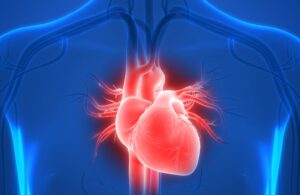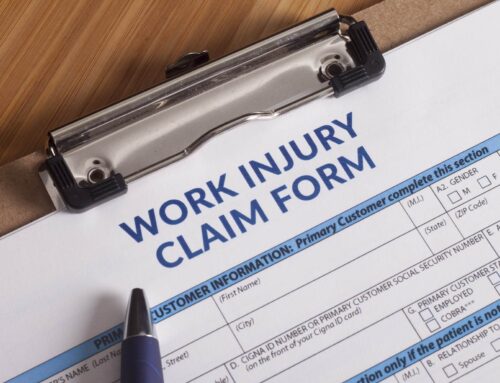By: Michael Brottman
According to the Center for Disease Control, someone in the United States suffers a heart attack every 40 seconds. This equates to approximately 800,000 heart attacks each year. “Heart disease is the leading cause of death for men, women, and people of most racial and ethnic groups in the United States,” or one-quarter of all deaths in this country. Coronary artery disease is the most common type of heart disease and, as you would expect, accounts for over half of these deaths. Sadly, about 20% of the people who die each year from coronary artery disease are under 65 years of age.
“Coronary Artery Disease is caused by plaque buildup in the walls of the arteries that supply blood to the heart (called coronary arteries) and other parts of the body. Plaque is made up of deposits of cholesterol and other substances in the artery. Plaque buildup causes the inside of the arteries to narrow over time, which can partially, or totally, block the blood flow“. A heart attack, or myocardial infarction, occurs when the heart muscle does not get enough blood. Sometimes people do not even know they have coronary artery disease until after they have suffered a heart attack.
Physical and emotional stress can sometimes trigger a heart attack. If you suffer a heart attack at work, or sometimes outside of work, this cardiac injury may be a compensable injury under the New Jersey Workers Compensation Act, N.J.S.A. 34:15-1, et seq. There are specific notice and other legal requirements that must be adhered to when making a workers compensation claim, so please contact an attorney immediately if you believe that you or someone you know has suffered a heart attack as a result of work.
In 1979, the Legislature amended the section of the New Jersey Workers Compensation Act that addresses work-induced strokes or heart attacks. N.J.S.A. 34:15-7.2. This section of the statute requires that a worker prove, “by a preponderance of the credible evidence that the injury or death was produced by the work effort or strain involving a substantial condition, event or happening in excess of the wear and tear of the claimant’s daily living”
In Hellwig v. J.F. Rast & Co., Inc. 110 N.J. 37 (1988), the Supreme Court of New Jersey interpreted the 1979 statutory amendments, addressing the employer’s argument that the work effort alleged to have caused the heart attack must exceed both the “wear and tear” of the employee’s regular job duties and his daily activities outside of work. The Court rejected this interpretation and held that a worker who suffers a heart attack at work does not need to show that they were performing a task that exceeded their usual or ordinary work duties. Rather, the court held a heart attack may be compensable even if the work being performed was no more strenuous than that worker’s “ordinary or routine work effort”.
Proving that a particular work effort, or strain, is sufficient to cause a heart attack is only the first step in establishing compensability. The worker must also show that the work effort exceeds the usual exertions in their lives outside of work. This does not mean that the work effort that causes the heart attack has to be something a person would never do at home. A worker who suffers a heart attack after repeatedly lifting 20 lb. bags of laundry while working in a commercial laundry facility will not automatically be denied compensation simply because they may carry a 20 lb. bag of laundry occasionally in the course of their life outside of work.
In Renner v. AT&T, 218 N.J. 435 (2011), the Supreme Court of New Jersey denied compensation to a worker who suffered a cardiovascular injury as extended sitting while performing professional responsibilities from a home office did not constitute a work effort or strain involving a substantial condition, event or happening sufficient to support a compensable cardiovascular injury. This case demonstrates that it will be extremely difficult for workers with “sedentary” jobs to receive compensation for cardiovascular injuries. In Renner, the injured worker performed her job while sitting at a desk, using a telephone or a computer. She was required to read, take telephone calls, send and receive e-mails, have conversations with her superiors and coworkers and make decisions. None of these activities are inherently stressful. The fact that most people perform some or all of these activities regularly outside of the workplace made it virtually impossible for this worker to satisfy the applicable legal standard set forth above.
Workers Compensation cases involving cardiac injuries are determined on a case-by-case basis. In determining the compensability of a workers heart attack, the court will consider the workers’ medical history, specific job duties as well as the worker’s lifestyle outside of the workplace. Anyone seeking to file a workers compensation claim for a heart attack or stroke should speak with an attorney, ideally one whose practice focuses on representing injured workers in New Jersey Workers Compensation Courts, and should not assume that they cannot prove their case until after they discuss it with an attorney. The facts of each case are different. Attorneys are trained to identify the facts or other aspects of a claim that can make or break your case. If you or someone you know has suffered a heart attack or stroke and believe their work may be a contributing factor should discuss this further with an attorney. Most attorneys who represent injured workers in workers compensation cases usually offer free consultations.
Michael D. Brottman is a workers compensation attorney and partner in the Lawrenceville, NJ law firm of Szaferman, Lakind. He can be reached at 609-275-0400 or via email at mbrottman@szaferman.com.
The foregoing is intended for general information purposes and is no substitute for specific legal advice.
References/Citations
https://www.cdc.gov/heartdisease/facts.htm
https://www.cdc.gov/heartdisease/heart_attack.htm
https://www.hopkinsmedicine.org/health/conditions-and-diseases/broken-heart-syndrome






